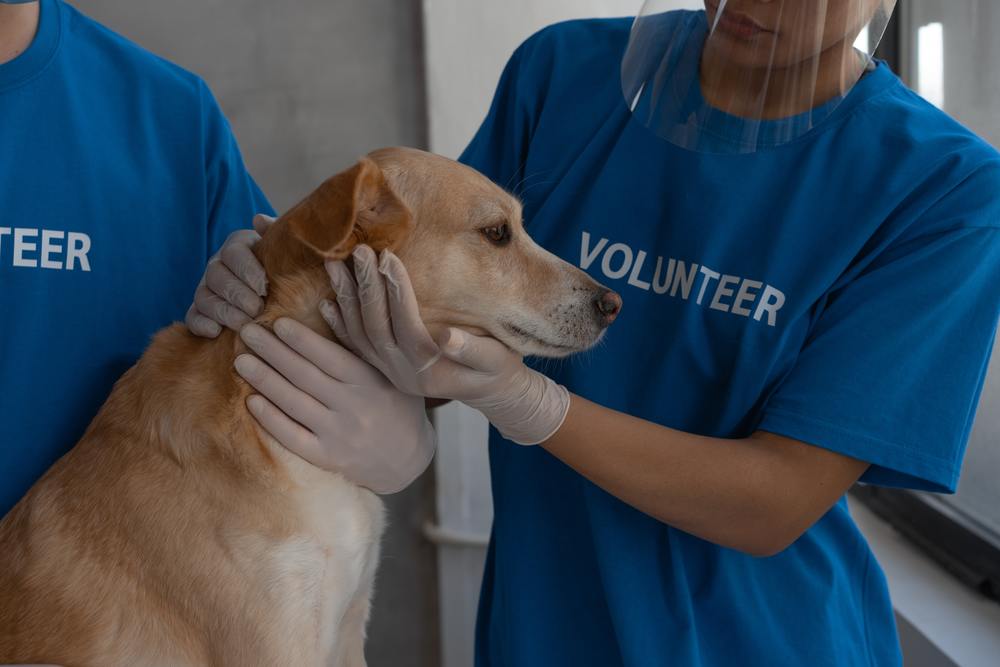Advances in Pet Vaccination: Understanding New Options for Preventing Dangerous Diseases
As a loving pet parent, you’re likely always looking for the best healthcare options to ensure your furry family members live long, healthy lives. One essential aspect of responsible pet care is up-to-date with vaccinations and parasite prevention. But with recent advances in veterinary care, it’s essential to stay informed and understand new options for preventing dangerous diseases.
Advances in Pet Vaccination
In this article, we’ll discuss the latest advances in pet vaccination and touch on essential topics such as veterinary diagnostic laboratory services and veterinary surgery.
The Importance of Pet Vaccination
Vaccinations are crucial for maintaining your pet’s health and protecting other animals and even humans from preventable diseases. In the past, pet vaccinations in San Angelo, TX, and other locations often involved a one-size-fits-all approach. However, advances in veterinary medicine have led to the developing of new vaccines and protocols tailored to individual pets’ needs, considering factors such as age, breed, lifestyle, and environment.
Tailored Vaccination Schedules
Veterinarians now have the option to create custom vaccination schedules for individual pets, taking into account their specific risk factors and needs. This helps to ensure that your pet receives only the necessary vaccines, reducing the risk of adverse reactions and side effects. Additionally, this approach can be more cost-effective, as you won’t be paying for unnecessary vaccines.
New Vaccine Technologies
- Combination Vaccines: Traditional vaccination protocols involved administering multiple shots to protect pets against diseases. However, advancements in vaccine technology have led to the development of combination vaccines. These vaccines offer protection against multiple diseases in a single injection, reducing the number of veterinary visits and minimizing stress for pets. Combination vaccines are available for various conditions, such as distemper, parvovirus, hepatitis, and leptospirosis, providing comprehensive protection against potentially life-threatening diseases.
- Non-Core Vaccines: While core vaccines, such as those for rabies and canine distemper, are essential for all pets, non-core vaccines are becoming increasingly prevalent. Non-core vaccines target diseases more specific to certain geographic regions, lifestyles, or individual pet risks. Examples include vaccines for Lyme disease, Bordetella (kennel cough), and feline leukemia virus. Consulting with your veterinarian can help determine which non-core vaccines are recommended for your pet based on location, travel plans, and exposure risks.
- Extended Duration of Immunity: Traditionally, pets received annual booster shots for vaccinations. However, research has shown that some vaccines can provide long-lasting immunity. This understanding has led to extended immunity protocol duration, reducing the vaccination frequency for certain diseases. Vaccines such as rabies and core vaccines for dogs are now administered at longer intervals, usually every three years or even longer. These protocols minimize unnecessary vaccinations and help decrease the potential for adverse vaccine reactions.
- Vaccination for Emerging Diseases: As new diseases emerge or existing ones spread to new regions, advancements in pet vaccination quickly respond to the evolving landscape. For instance, recent developments have introduced vaccines against conditions like canine influenza and feline immunodeficiency virus (FIV). These vaccines help protect pets from emerging infectious diseases. They can be especially valuable for those at higher risk, such as animals in close contact with other pets or collaborative environments like boarding facilities or shelters.
- Personalized Vaccination Plans: Advancements in veterinary medicine have led to a better understanding of pet needs and vaccine responses. With this knowledge, veterinarians can create personalized vaccination plans based on age, lifestyle, health status, and risk assessment. Personalized plans ensure that pets receive the necessary protection while minimizing the potential for over-vaccination.
Timely pet vaccinations in San Angelo, TX, and surrounding areas play a vital role in maintaining your pet’s health and preventing the spread of diseases. New advances in vaccination technology have allowed for more individualized and practical approaches, benefiting you and your furry friend.
Veterinary Diagnostic Laboratory Services
Emerging veterinary diagnostic laboratory services allow for faster and more accurate testing, contributing to the overall better care of your pet. These advancements include new diagnostic techniques such as molecular testing and next-generation sequencing, which can help detect diseases like parasites and infections at an earlier stage. Early detection is crucial for successful treatment and can save your pet’s life.
Veterinary Surgery Services
In addition to advances in pet vaccinations and diagnostic testing, veterinary surgery has also seen significant improvements in recent years. From minimally invasive surgical techniques to advanced anesthesia monitoring, veterinary surgery services have evolved to provide your pet with the safest and most effective care. For example, laparoscopic surgery, a minimally invasive option, has become increasingly popular in veterinary medicine. This approach allows for smaller incisions, reduced recovery times, and less pain for your pet following surgery.
Conclusion
Staying informed about the latest advances in pet vaccinations, veterinary diagnostic laboratory services, and veterinary surgery is essential for ensuring the best possible care for your beloved pet. These advancements, combined with regular visits to your trusted veterinarian, will help keep your four-legged family members healthy and happy for years.


